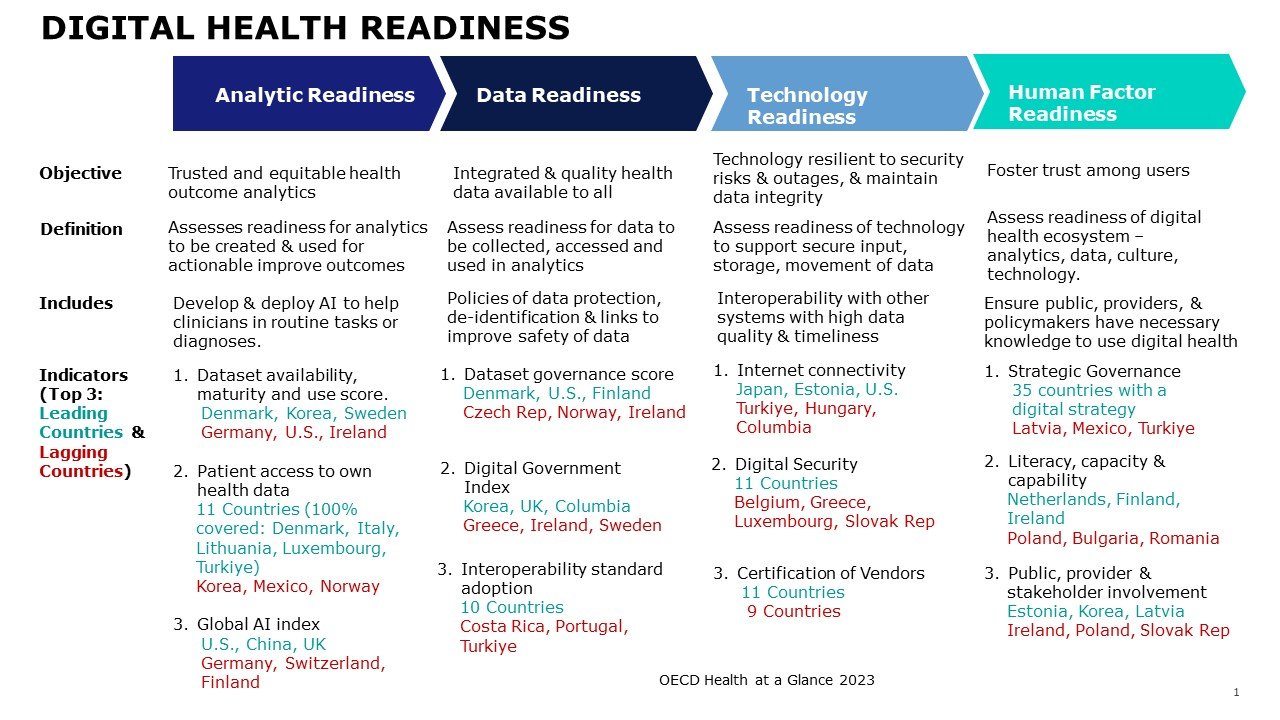Global Digital Health Variances
SUMMARY:
Various issues preclude the implementation of full digital health systems to improve clinical care.
A reliable format to institute digital health consistently across countries remains elusive due to the lack of a coordinated system of data integration and sharing.
The opportunities for each country to improve the current use of digital health maybe linked to a consistent framework and readiness evaluation.
REVIEW
Digital health has had a dramatic impact on healthcare systems globally.
Digital health plays a role via:
The EHR
Use within Population Health data
Integration into clinical care
Use of artificial intelligence
Sharing of health data
Significant barriers exist from country to country to the expansion of digital health resulting in conflicting, uncoordinated systems of data sharing and digital health access.
Countries have varied federal and regional differences in health policy planning, regulations and delivery of digital healthcare.
Framework Template For Digital Health
FRAMEWORK FOR DIGITAL HEALTH by COUNTRY:
Although different countries take different approaches with the deployment of digital health programs, there are 7 areas which should be used as a template guide for each country to address in developing their plan.
These common themes should include:
Policy Objectives: Development of a national digital health strategy
Regulation & Governance: Regulate and monitor all providers; gather user experiences
Financial: Establish rules for financing & reimbursement. Data collection on financial impact and patient outcomes.
Delivery & Integration: meet user needs and mitigate digital exclusions.
Workforce: Training and education, Proper team composition.
IT Systems & Data Sharing: Improved interoperability, ensure data privacy, All providers to share data, assess trends.
Patient Involvement: in the development of the digital health care system
Digital Health Readiness Evaluation
DIGITAL HEALTH READINESS by COUNTRY:
The digital health readiness has been proposed as a measure of each countries ability to make use of analytics, data and technology in the pursuit of improved patient outcomes.
The digital health readiness for a country is its ability to bridge the items in the above framework with the development of infrastructure, strategies and governance framework.
There are 4 areas of digital health readiness, each with 3 sub-categories.
CONCLUSIONS:
The digital landscape is complicated by public systems, large multi-national private entities, various models of care delivery, and varying regulations.
Digital health has great potential to transform health systems. However, many countries are ill-prepared for full digital health transformation.
Digital health readiness coupled with a consistent framework form the foundation from which data can be leveraged to improve well being.

